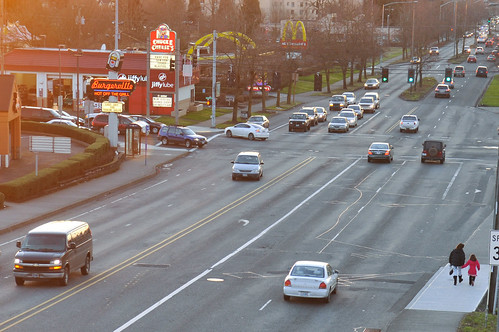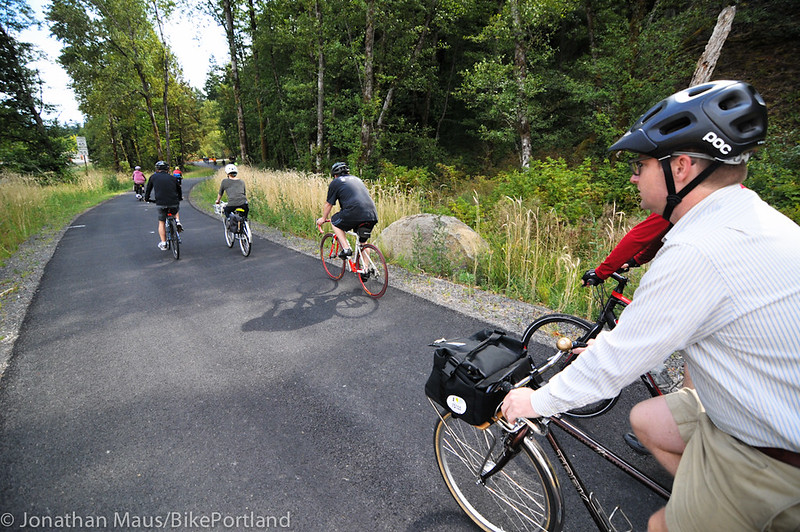
(Photo: J. Maus/BikePortland)
Oregon’s statewide transportation bill is on its way to Governor Kate Brown’s desk. With support from boths sides of the aisle it passed the House yesterday 39-20 and passed the Senate today 22-7.
House Bill 2017 was on the rocks just weeks before its passage; but that was before lawmakers hashed out major compromises. The initial proposal would have raised over $8 billion dollars — including about $777 million for four freeway widening projects in the Portland metro region. Funding for those projects would have come from a new local gas tax and increased registration fees. Those fees and taxes brought auto lobbyist groups out of the woodwork in opposition. With the threat of referral to voters, lawmakers slashed the funding for those highway projects, reduced the size of tax increases, and ultimately shrank the bill’s overall revenue by about $3 billion (they also got environmental groups and Republicans to agree to changes in the low carbon fuels program).
The amended bill will raise $5.2 billion over 10 years. And while the big-ticket highway project earmarks — including I-5 expansion at the Rose Quarter — went way down, the revenue share for public transit, biking and walking remained intact.
Among other things, the bill will provide: $103 million a year to transit agencies to improve bus service via a 0.1% employee-paid tax on wages; $125 million for Safe Routes to School via a 40% matching grant program; and an estimated seven million per year (exact amount will fluctuate) dedicated to paved paths and multi-use trails via a combination of sources including a $15 bike tax. The boost in gas tax revenue will also help pay for road projects that will include a minimum of 1 percent investment in biking and walking-related upgrades thanks to Oregon’s “Bike Bill”.









